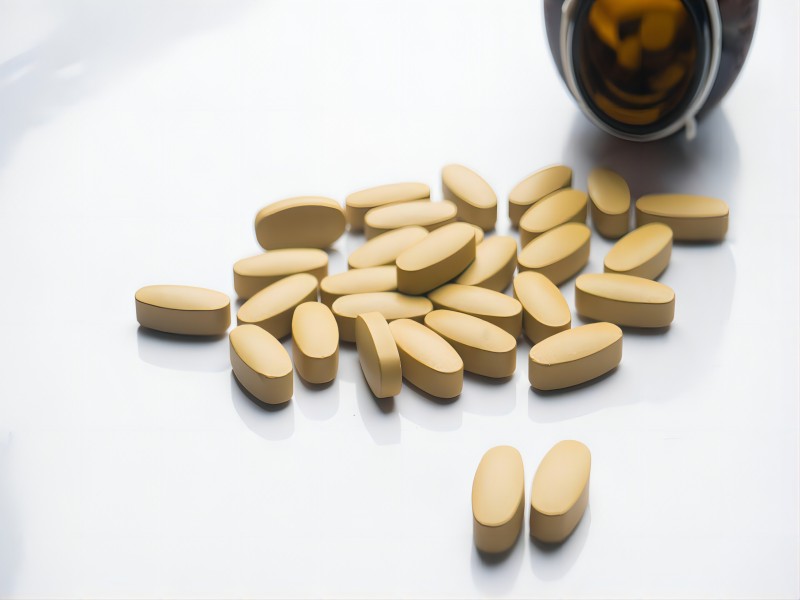What is L-Valine?
L-valine is an essential amino acid that has wide and expanding applications with a suspected growing market demand. Its applicability ranges from animal feed additive, ingredient in cosmetic and special nutrients in pharmaceutical and agriculture fields. Currently, fermentation with the aid of model organisms, is a major method for the production of L-valine. However, achieving the optimal production has often been limited because of the metabolic imbalance in recombinant strains. In this review, the constrains in L-valine biosynthesis are discussed first. Then, we summarize the current advances in engineering of microbial cell factories that have been developed to address and overcome major challenges in the L-valine production process. Future prospects for enhancing the current L-valine production strategies are also discussed.
What is L-Valine used for?
As a BCAA, nutrition L-valine is taken as a supplement for building muscle. But in the course of muscle protein synthesis and the metabolism of muscle function, L-valine provides several important benefits.
Increased muscle protein synthesis
On its own, L-valine does not provide much benefit for building muscle. But taken with the other BCAAs, isoleucine, and leucine, it significantly increases the capacity of your muscles to repair the damage. This means that the other BCAAs may work well for building muscles, but the addition of L-valine boosts your ability to do the work necessary to build muscle.

Faster workout recovery
L-valine can reduce the soreness that follows a workout. It also aids muscle recovery. It is common to feel sore after a workout. This is the “pain” that comes with the gain, as they say. It is also common to feel a burn immediately. These pains and soreness can last up to three days. Some of this pain and soreness is due to physical damage to muscle tissue.
L-valine has been shown to reduce the severity of this pain and soreness and reduce the length of time that it persists. L-valine is instrumental in repairing muscle tissue. It also reduces the production of an enzyme called creatine kinase which is a chief indicator of damaged muscle. L-valine leads to faster recovery and more efficient recovery, and this gets you back to working out faster and with greater ease.
Increased endurance
One of the most common issues when building a workout is reaching a plateau at which you don’t seem to be able to get beyond. This point where you seem to have hit a maximum. This is partially due to a shortage of L-valine. L-valine stores in the muscle and blood keep you going while working out. When you reach a point at which you have depleted your stores of L-valine, this signals the muscles and bloodstream to release both tryptophan and serotonin—two chemicals that tell the muscles to rest and relax. Both of these chemicals induce sleep. By taking L-valine before your workout, you give your muscles an extra jolt of the very chemical you need to increase your workout rather than reach a plateau. The extra L-valine increases endurance and reduces fatigue.
Research has shown that taking L-valine even without adding the other BCAAs has shown that it is effective in maintaining glycogen and blood glucose levels.
Muscle maintenance
The entire process of building muscle consists of deliberately breaking muscle down and re-building toward increased muscle mass. One of the most important things to guard against is reaching a point where muscle breakdown exceeds muscle synthesis. You can help maintain this balance and tip things toward building muscle with increased levels of L-valine. Since L-valine is one of the crucial BCAAs for maintaining muscle repair, it ultimately ensures that your workout cycle comes to a net gain rather than loss.
Fights liver and gallbladder disease
L-valine is best known for its benefits as a workout supplement. But L-valine is also important for our overall health. One way that L-valine is beneficial beyond muscle growth is preventing and fighting liver and gallbladder disease. Conditions that compromise the liver and gallbladder make it difficult or impossible for your body to cleanse the system of toxins. These conditions will cause brain damage in the long run. The presence of sufficient quantities of L-valine boost liver and gallbladder function. Some research suggests that L-valine could also guard against liver cancer.
Sources of L-Valine
Since L-valine is such an important amino acid for life it is found in a variety of natural dietary sources. Some of the best sources of L-valine include:
Lean beef
Chicken breast
Pork
Tuna
Tofu
Low-fat yogurt
Navy beans
Podded peas
Squash and pumpkin seeds
Oatmeal
L-valine supplements are commonly taken by weightlifters and performance athletes as part of their workout routines. People that are looking to increase their valine intake through supplements have a few options. One option is to take the L-valine by itself. You can also take BCAA supplements that provide a balance of the amino acids L-leucine, L- isoleucine, and L-valine. Both whey protein and egg protein supplements also contain BCAAs.
There are some great L-valine supplements for those who require an extra jolt of L-valine. People engaged in intense athletic training can benefit from taking an L-valine supplement.